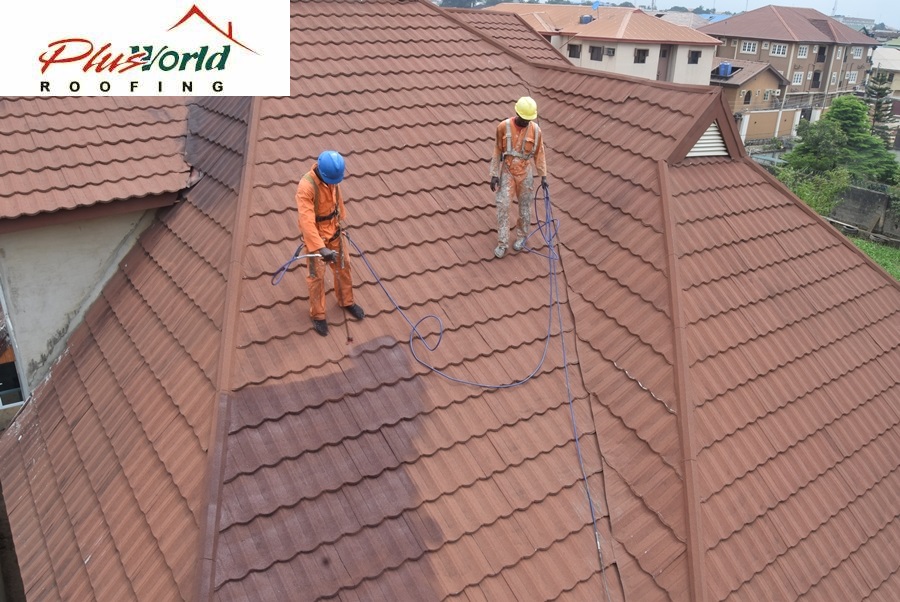OPINION
Fighting climate change in Africa with roof restoration

The climate change phenomenon is a global challenge. A substantial part of this impact affects Africa due to its tropical weather. Africa with its large population of about 1.2 billion people is housing the largest hot desert in the world, which covers about 9.2 million kilometres (31% if the total land area of Africa) which makes it more susceptible to the impact of climate change. A huge portion of this population lives in poverty and poor shelters.
Some of the effects of climate change on the continent includes but are not limited to higher temperatures, droughts, changing rainfall patterns increasing climate variability, rising water levels, poor health and livelihoods, weak food productivity, non-availability of clean and portable water, insecurity, boundary and farmer-herders conflicts (AWDR, 2006), malnutrition and poverty (IPPC 2014).
Fighting Climate Change
According to estimates of the United Nations population division as reported in the Financial Times Report (2017) on the “implication of population growth in Africa”, the population of Africa is expected to rise to about 4 billion in 2050. What this statistics means is that, apart from the impact that this would have on the economy of Africa, there would be the need to provide more shelter for the population as more people would call Africa home. This also means that the demand for jobs, decent homes and housing would be on the increase.
The questions are, what would be the quality of these housing, would they be affordable, saving energy, cooling, improve air quality and ventilation, improve the values of sustainability and help to fight climate change or further exacerbate the current challenges of climate change in Africa.
One of the factors that promote climate change is the “Urban Heat Island” effect. This phenomenon which has been worsened by fossil fuel vehicles, power generators and rampant use of air conditioners and other sources had increased the emission of Green House Gas (GHG) to the atmosphere leading to increase in global warming. There are warnings that this can add up to about two degrees to the global warming estimates by 2050. Also, having so many dark roofs clustered in urban and metropolitan areas can increase the effect of this phenomenon.
African cities are adorned with a landscape of metal pitch roofs, usually poorly installed and rusty looking. This is evident in cities like Ibadan and Abeokuta in Nigeria. So it is expected that these cities would be hotter than other cities with more contemporary roof design such as concrete, flat, cool or green roofs.
Mitigation
These effects can be mitigated by adopting the Brazilian approach of the “One Degree Less” movement (ODL 2009), where it has adopted cool roofs and heat island mitigation as its first practical program to combat the effect of global warming because of its large population and mostly hot climate, this also can be achieved by painting roof with white or lighter colours (cool roofs) or using any other high heat-reflective coating that can throwback about 70% to 90% of the heat ray that hits the roof and through the planting of more vegetation.
Roof restoration gives homeowners the benefit of repairing and repainting their roofs with Eco-friendly materials and techniques rather than taking the option of replacement or removal. This process gives the individual the satisfaction of saving on the cost and time of producing a new roof but in and of itself, helps to protect the environment by reducing the embodied energy that is expended in the deforestation, extraction, manufacturing, and transportation of raw materials used in the production of new roofs. Roof restoration also promotes the reduction in the disposal of waste and other non-degradable materials to landfills.
Studies by Akbari and Mathew in 2012 (Global Cooling Updates), reveal that, by increasing the solar reflection of urban surfaces, the outflow of short-wave solar radiation increases, less solar heat energy is absorbed leading to lower surface temperatures and reduced outflow of thermal radiation into the atmosphere. This process of “negative radiative forcing” effectively counters global warming. Cool roofs also reduce cooling-energy use in air-conditioned buildings and increase comfort in unconditioned buildings; and cool roofs and cool pavements in cities worldwide is a compelling win-win activity that can be undertaken immediately, outside of international negotiation to cap Co2 emissions.
Research from the University of Essex has also shown that urban warming can be reduced if we use green roofs and heat-reflective roof in our towns and cities. This practice would help to reduce the atmospheric temperature by 0.07 degrees Celsius and in carbon-dioxide emissions, an equivalent of up to 150 billion tonnes.
The journal of Nature Climate Change in its analysis of 1,692 cities shows that it would cost economies all over the world more than 2 times the cost to fight climate change if the Urban Heat Island effect is not given adequate attention.
So, it’s very imperative that policymakers at all levels should begin to take deliberate steps to fight climate change by making sure global measures are implemented locally by encouraging the use of roofing materials that have high albedo rate as this would not only help save the environment, it would keep the temperatures below and above rooms cooler, save energy cost and put money back into the economy.
We need to take a cue from the cool roof and cool pavement incentive programs, technologies and policies in the U.S, Europe and Asia and compare it to the few or non-existent initiatives in Africa and thereby propose an international campaign to use solar-reflective materials when roof and pavements are built or resurfaced in temperate and tropical regions.




 Davido's Net Worth & Lifestyle
Davido's Net Worth & Lifestyle 
